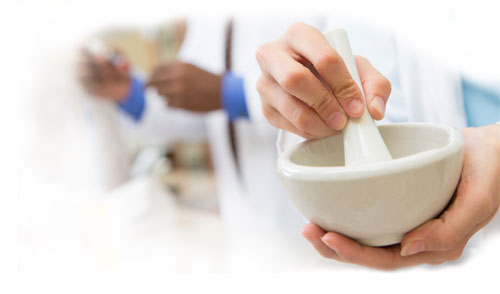The Government Accountability Office (GAO) issued a 70-page report (here) November 2016 on Drug Compounding, which will keep the pressure up for enforcement of the 2013 Drug Quality and Security Act (DQSA). The lengthy GAO Report is enlightening in that it examines: settings in which drugs are compounded; state laws and enforcement; communications between and amongst states and FDA; and steps FDA has taken to implement its responsibilities to oversee compounding.
GAO administered a web-based survey to 50 state pharmacy regulatory bodies, Washington D.C, Guam, Puerto Rico, and the U.S. Virgin Islands. Note that only 93% responded to the survey. In addition, GAO interviewed executives from 25 organizations that have an interest in compounding and also interviewed FDA officials. The interviews and survey were used to collect data on the four topics above as well as to record challenges from states and stakeholders to enacting the DQSA at the state and Federal Level.
GAO also conducted a performance audit of FDA from May 2015 to November 2016 and analyzed FDA data on inspections of drug compounders, and data on actions taken such as issuance of FDA 483 observations, Warning Letters, voluntary recalls and State referral letters to Boards of Pharmacy.
Even though the bulk of this report looks at state laws, licensing requirements, types and numbers of compounding entities, state inspection frequencies and enforcement actions that the states “may” be prepared to take, upon review, there are some zingers in the gaps that are highlighted in the text. Also, note that most states do not provide any oversight to non-pharmacy entities that compound drugs (physicians and non-pharmacists). Twelve (12) states reported that they have separate licenses for pharmacies that compound sterile preparations. Forty (40) states report that they require Outsourcers to also have a state license if conducting business in their state, and, that if Outsourcers are compounding for individual patients based on a prescription in their state, that the Outsourcer register as a pharmacy as well.
FDA has taken several actions to implement its responsibilities for oversight and has conducted more than 330 inspections to date. For example, since issuance of DQSA in late 2013, FDA visited 503A pharmacies 265 times with 121 for cause, 40 follow up and 104 surveillance inspections and visited outsourcing entities (503Bs), 75 times with 6 for cause, 15 follow-up and 54 surveillance inspections. During this time, FDA issued 81 Warning Letters, required 72 voluntary recalls, issued 31 State Referral Letters (to Boards of Pharmacy requesting further actions) and required one regulatory meeting for a 503A pharmacy. In the same time, FDA issued 24 Warning Letters, required 15 voluntary recalls (in some cases a recall of all sterile compounded preparations with the beyond use dates) and issued one Untitled Letter. FDA disclosed that, as of April 22, 2016, 40 of 59 Outsourcers had not provided some or all the reports required by DQSA. Heads up for the industry – FDA reported that they have not yet taken regulatory action against any Outsourcers for failing to report.
FDA has issued 8 Guidance documents in final form and 12 in draft. Upcoming final Guidance will include the Memorandum of Understanding (MOU) standard which is a challenge for pharmacies and states. This standard for states that have signed the MOU with FDA will limit the total number of compounded preparations that may move across state borders to 30% of the compounded preparations in that month, and for states that have not signed a MOU, to 5%. Other final Guidances expected are for GMPs for 503B facilities.
Other notable sections of the Report discuss that nearly all states do not collect data on the volume of compounded products. In June 2016, HHS’s Office of Inspector General (OIG) reviewed spending for compounded drugs under Medicare Part B. Spending rose from $70 million in 2006 to $508.7 million in 2015. The increase is due to price increases and the number of recipients of the benefits. The top three states reporting on the number of pharmacies doing sterile compounding are CA (1024), Texas (928) and Florida (581). Note that as of November 2016, there are only 65 registered Outsourcing facilities.
This report is worth reading in detail and contains data and information on the challenges to the practice of pharmacy; regulation and enforcement by states; and FDA in implementing and enforcing the DQSA.




